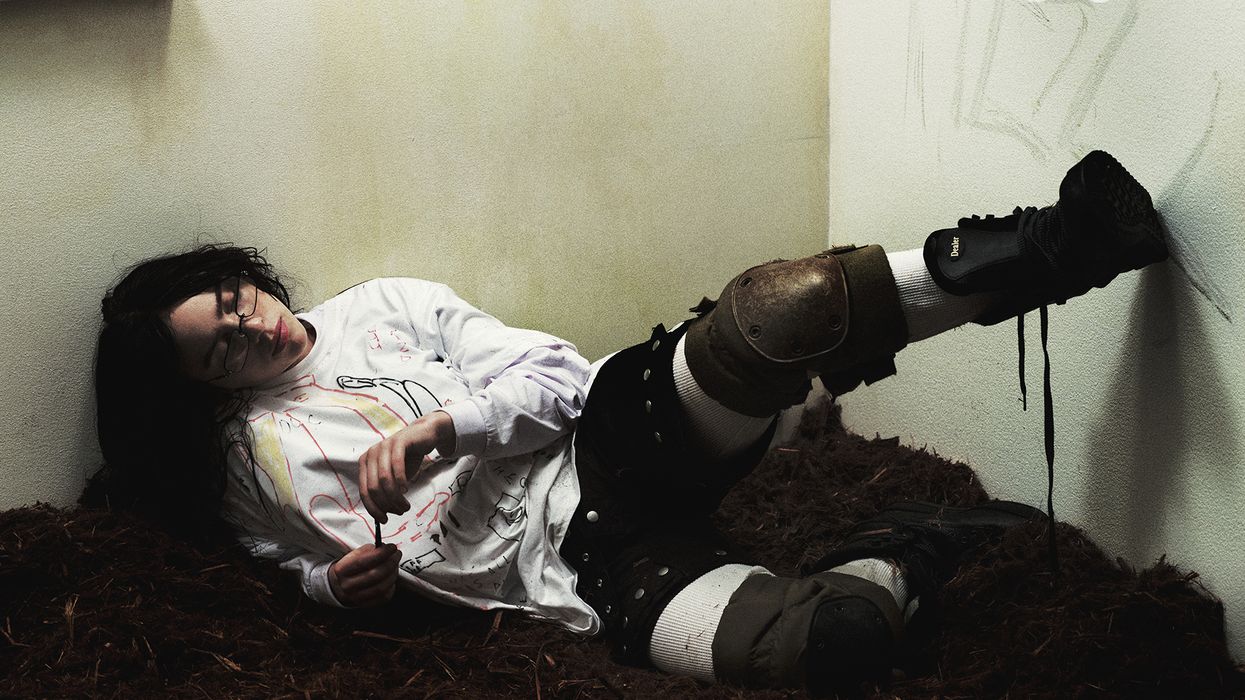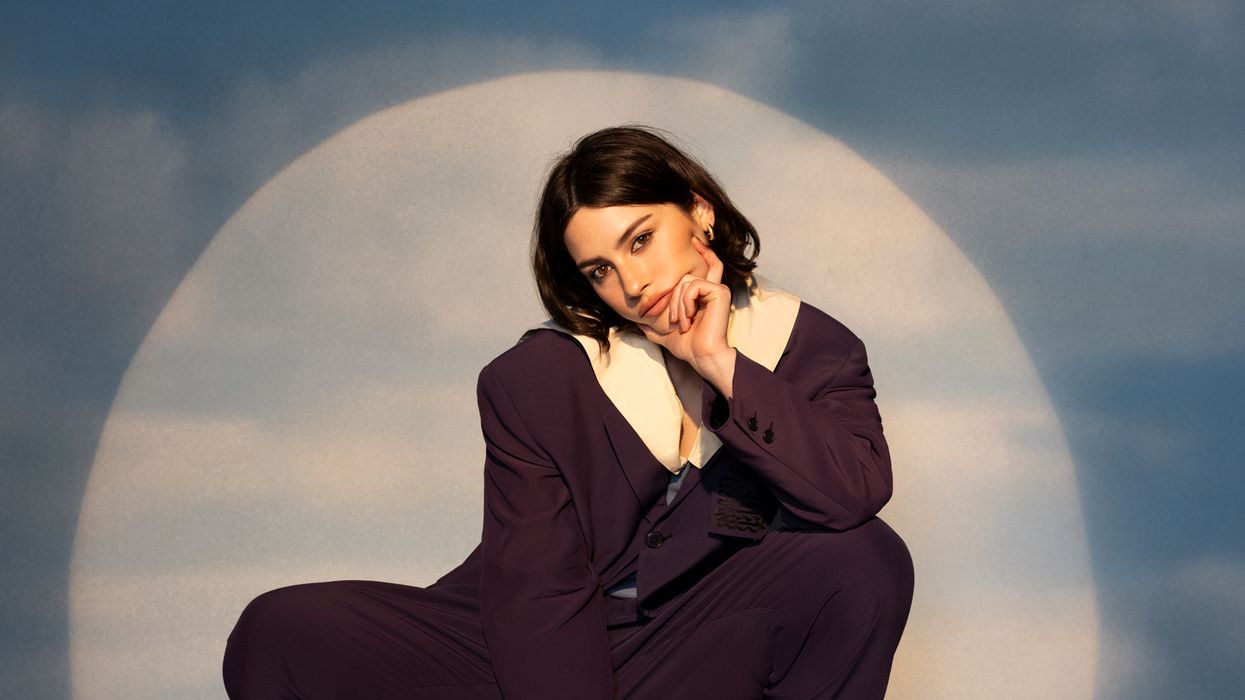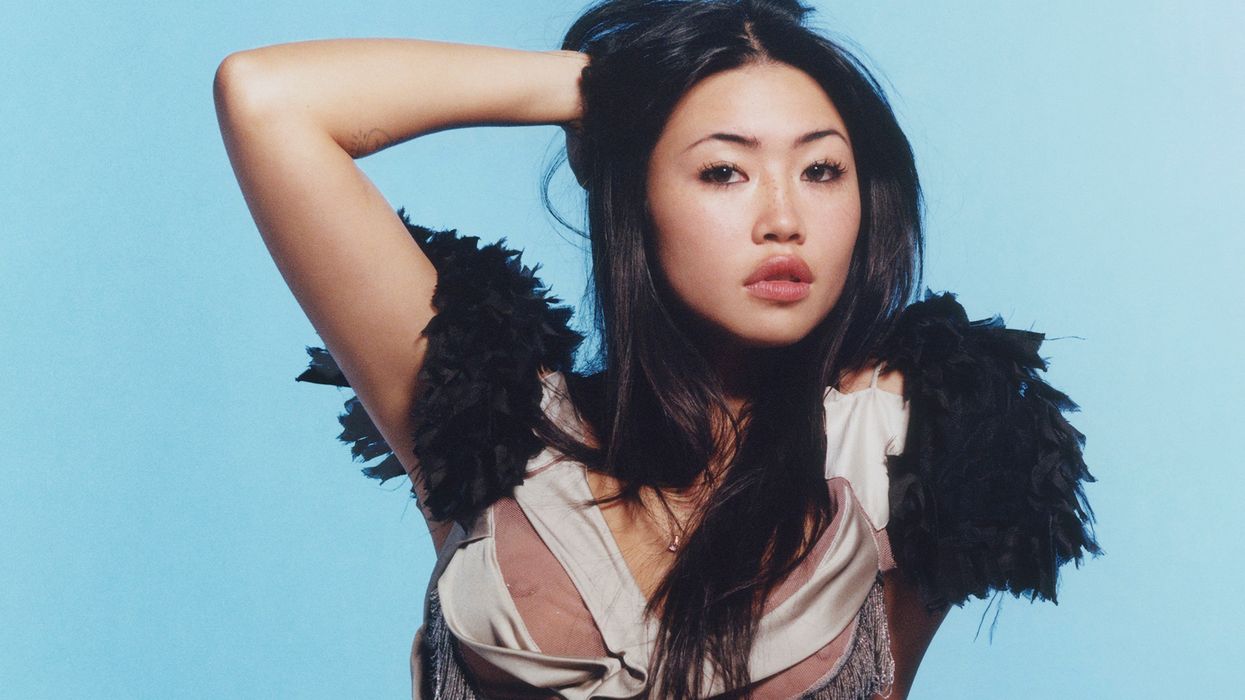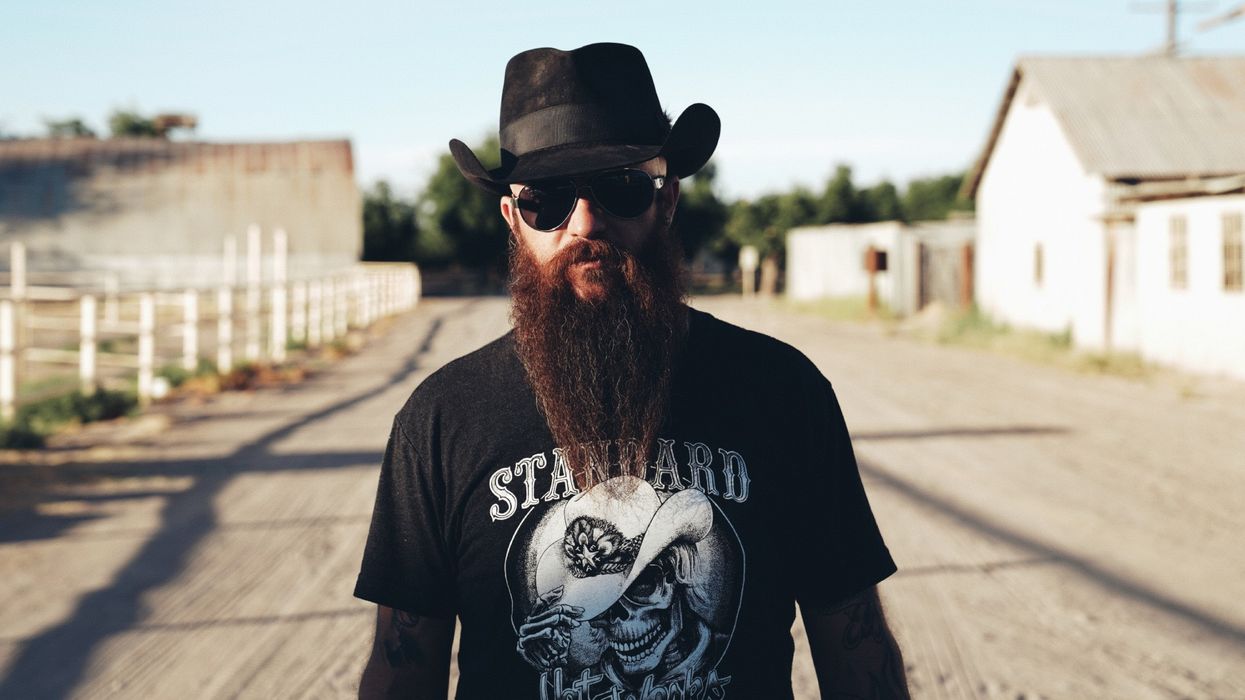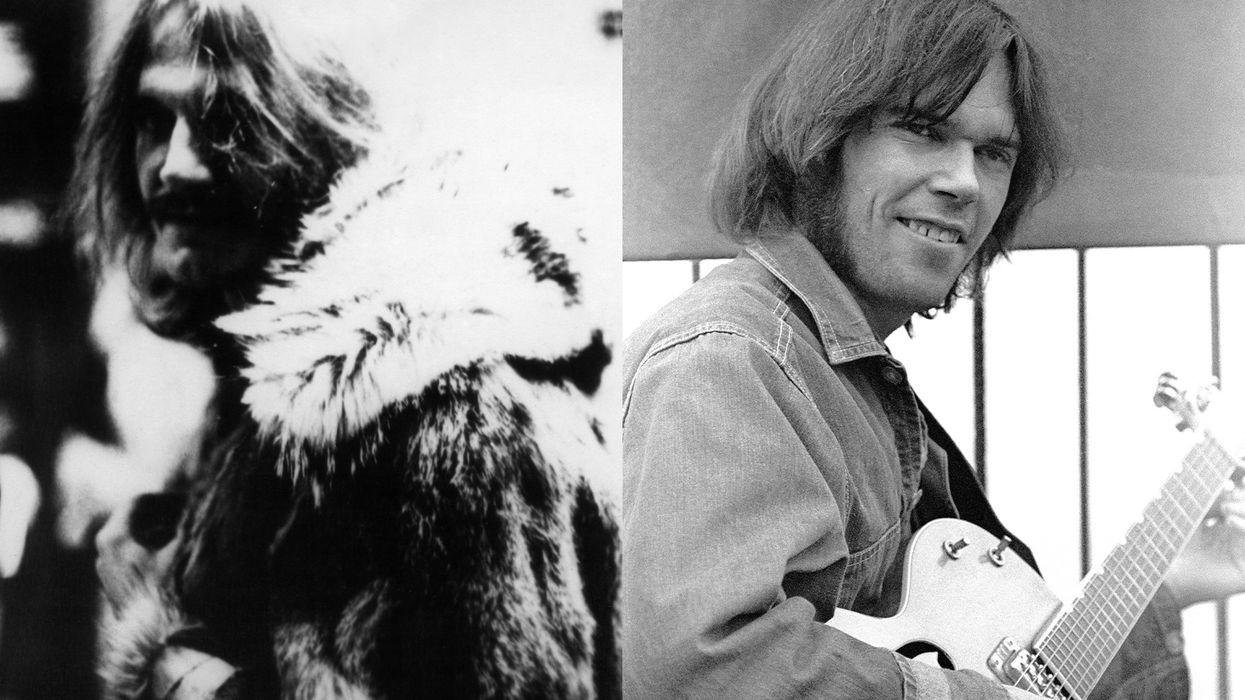MySpace effectively died years ago, taking its top-eight ranking system and maximalist interface to the grave with it. Visiting anyone’s profile on the website felt like an immediate visual and auditory assault. There were always some zany graphics flashing against an ornate background, and always some thunderous song set to auto-play the second the page loaded. It was bizarre and unpredictable in a way few corners of social media are now — a chaotic curation of individualism before the stakes of online perception got so high. It’s too bad that was swept away before Porter Robinson could release SMILE! :D. It would have fit perfectly.
“Cheerleader,” the first single from the musician’s third studio album, is the kind of song that indicates a palpable shift, not unlike the way music on MySpace would often break pivotal players in niche scenes. Back then, it wouldn’t even be an artist’s official profile that served as the primary vehicle for discovery. Most of the time, it was regular people being shaped and transformed by whatever they were hearing. The ease of access social media provided allowed them to seek out community online with other fans and, notably, the artists themselves. Like the bulk of SMILE, “Cheerleader” is a conceptually adventurous and sonically indulgent examination of a fundamental holdover from that era: parasocial dependencey.
In the music video for the single, Robinson sits on the floor with amps, guitars, and MIDI keyboards scattered all around him. A little cheerleader figurine watches him from the edge of a drum pad, dancing and kicking her feet while he pays her no mind. In actuality, she’s just a girl sitting in a room with his face plastered across everything, and he’s a figure in the model city she made for him to live in until he breaks the fourth wall. “She’s got hearts in her eyes/And she draws me kissing other guys/Her love, the type where she don’t know where to draw the line,” Robinson observes as the bass kicks up. “Cheerleader, thought she needed me, but I need her.” It’s clear that he’s had time to think about this — SMILE is his first release as a lead artist since his album Nurture arrived in 2021.
Nurture was Robinson’s most significant sonic shift away from the dance and electronic music that he broke through with more than a decade ago. It was atmospheric and created a foundation for him to build around vocally. This new album operates in the opposite direction, with his vocals and lyrics leading his explosive pop production towards a creative breakthrough. Despite how comfortable he sounds in the format, diving over the edge of pop didn’t come without some anxiety for Robinson. His audience often latches onto specific versions of him, and when he makes these big shifts it’s never clear if they’ll ever get those old versions back. His anxiety doesn’t seem to stem from the change itself, but from how it might be perceived.
“Knock Yourself Out XD” — reminiscent of an old mall arcade with punchy lyrics about Taylor Swift and Bugattis — examines the codependency he explores across the record. “Crying at the airport /‘I’m sorry, can I get a pic?’/Telling me a sad story/Another reason not to quit,” he sings. Later, on the straightforward pop cut “Perfect Pinterest Garden,” he dives deeper into whatever it is he seems to represent for his audience. “I’ve got your name on my sweater and your life in my hands,” he starts, seemingly shifting into their perspective. “I don’t need my fucking money, I need you to pretend/Just a little simulation of being a friend/I think we all feel better when you play the game.” In the “Cheerleader” video, the girl with hearts in her eyes plays a more literal game centered around Robinson on Porter-Builder-v3.net.
A fan noticed after its release that the domain was still available and purchased it. “Let me take the opportunity to say thank you for all the beautiful things you’ve created and the love that you’ve showed your fans over the years,” a note to Robinson on the actual site reads. “You’ve impacted the lives of countless people in so many amazing ways.” Even when he’s tangled in the wires of needing and being needed, he cherishes how it feels being in front of those people. “I’ll be one of your things/And maybe I’m addicted to the look in your eyes/It’s hard to say you’ve had enough when you get this high,” he resigns on “Everything to Me,” the ballad that closes the album. “I shouldn’t say ‘I love you’/I don’t know your name/But I’ll just say it anyway/‘cause it feels the same.”
Robinson delivers his clearest vocal performance on the idiosyncratic standout “Year of the Cup,” a pseudo ballad that builds around audio from a 2009 Lil Wayne interview about the link between substance use, creativity, and success. Robinson is sober now, but acknowledges the thrill he gets from commanding an audience as a point of vulnerability. Wanting people to like him, he says, is his achilles heel. In an instance of true defenselessness, he narrates a scene where memories of his worst moments play out as he tries to fall asleep. “My mind keeps ringing with times that I laid out everything wrong with me up on stage/It’s embarrassing,” he admits. “‘Fuck you, you don’t deserve me,’’ the bus went totally silent /‘Help me’ is what I meant to say.”
When he was entrenched in the EDM scene, Robinson saw versions of this call for help play out around him all the time. He has previously pointed to Avicii’s death by suicide in 2018 as being a “wake up call” for the scene, and offers insight into his own experience with depression and suicidal ideation on “Russian Roulette.” The song is an eclectic mix of sounds that fluctuate in volume and runs for nearly seven minutes, making it the longest on the album. “I wanna try to change one more time/I wanna live I don’t wanna die,” he sings over airy acoustics that ramp up into an explosive, distorted break where he declares more intensely: “I wanna live.” The last line of the song is a robotic voice reminding him: “Don’t kill yourself, you idiot.”
Robinson grows more comfortable with change across SMILE, even as he expresses regret about getting veneers on “Kitsune Maison Freestyle,” where he mourns: “I can’t get the teeth my mom gave me back in my mouth.” He knows he can’t go backwards. On “Is There Really No Happiness?” a woman tells him: “You know, Porter, some people die of nostalgia.” The song’s melodies and harmonies create a sense of movement, like he’s running towards or away from something. It’s a study of memory that acknowledges that we can’t always trust our own approximations of the past, even if our version is more comforting than the truth. He calls back to the memories that he talked about earlier on “Russian Roulette,” the ones he wanted to experience one more time, like messing around on the family computer.
Robinson’s old MySpace page is long gone by now, but it’s not hard to imagine clicking into his profile and immediately hearing “Mona Lisa” on auto-play. It’s the only collaboration on the album, a rock-driven number with an assist from the pop duo Frost Children. They’d likely be in his top eight alongside his co-writers and producers Gavin Bendt, Mikey Freedom Hart, Luke Shippey, James Ivy, and Michael Stone. Maybe he’d have one of his cheerleaders in the mix, too, for good measure. The webpage would be as brazen and audacious as SMILE is — a rejection of sterile minimalism with a status update that recites one of the record’s most defining lyrics: “If I never changed, would you love me?”
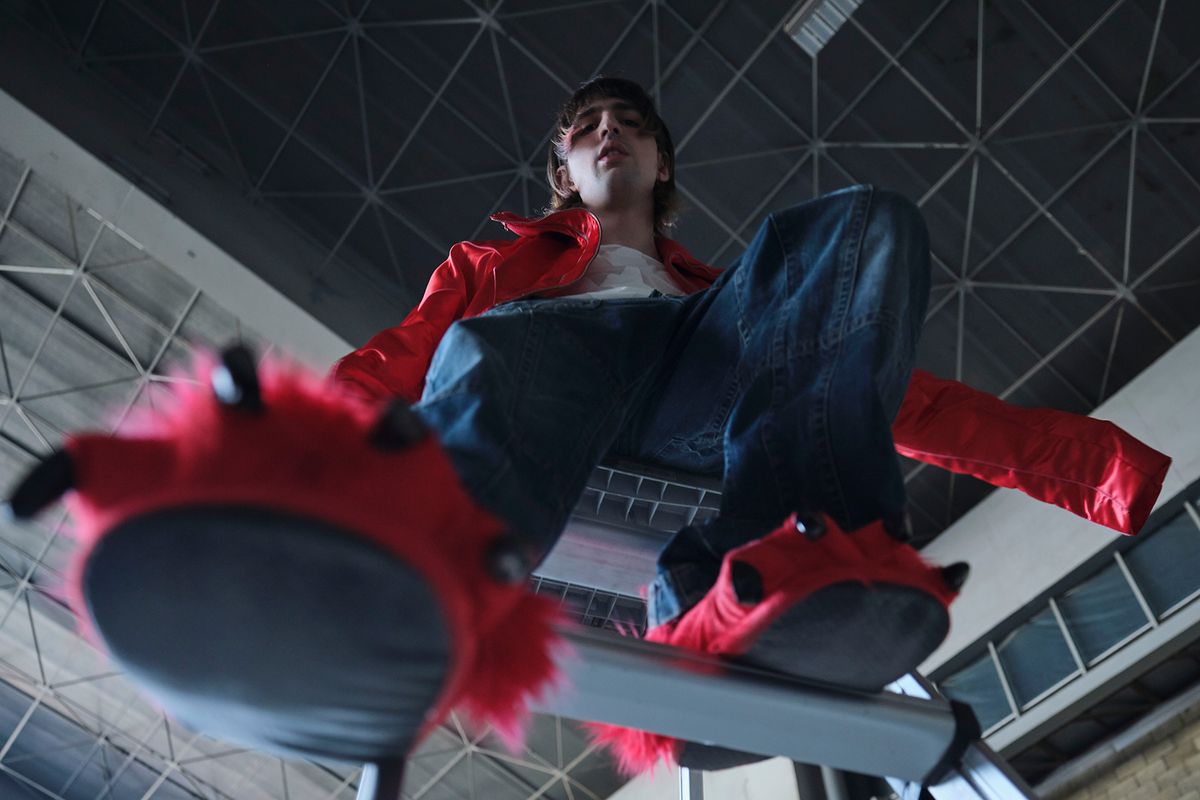





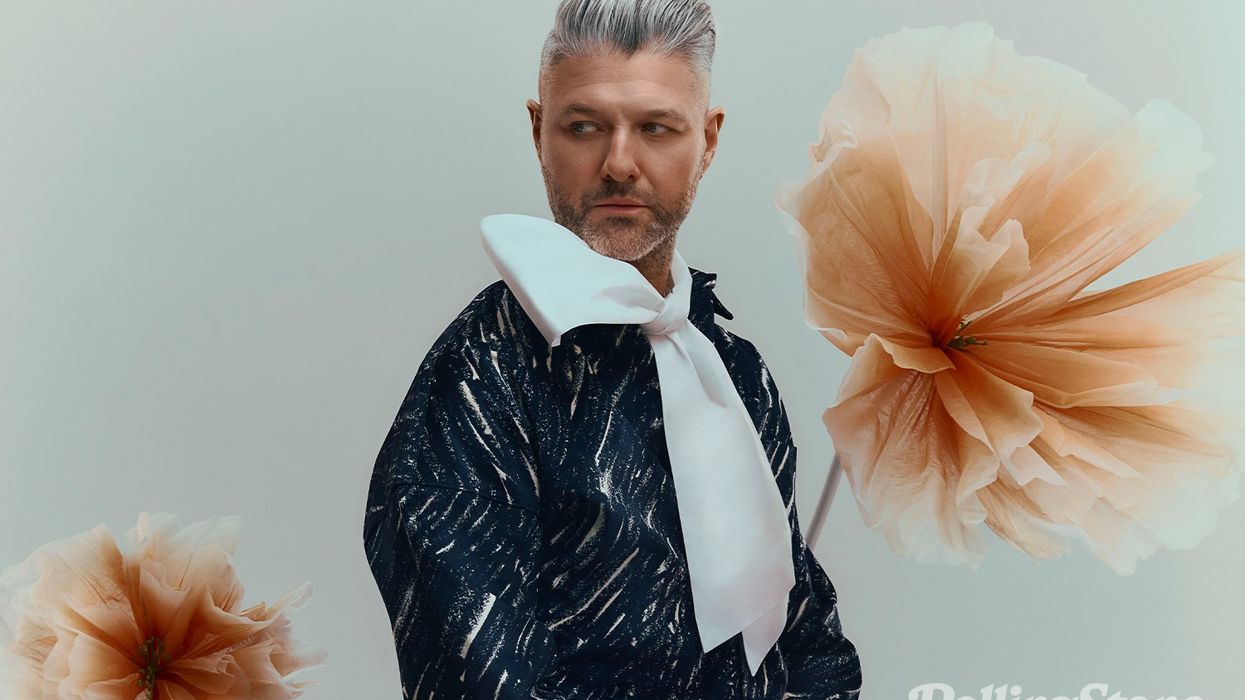
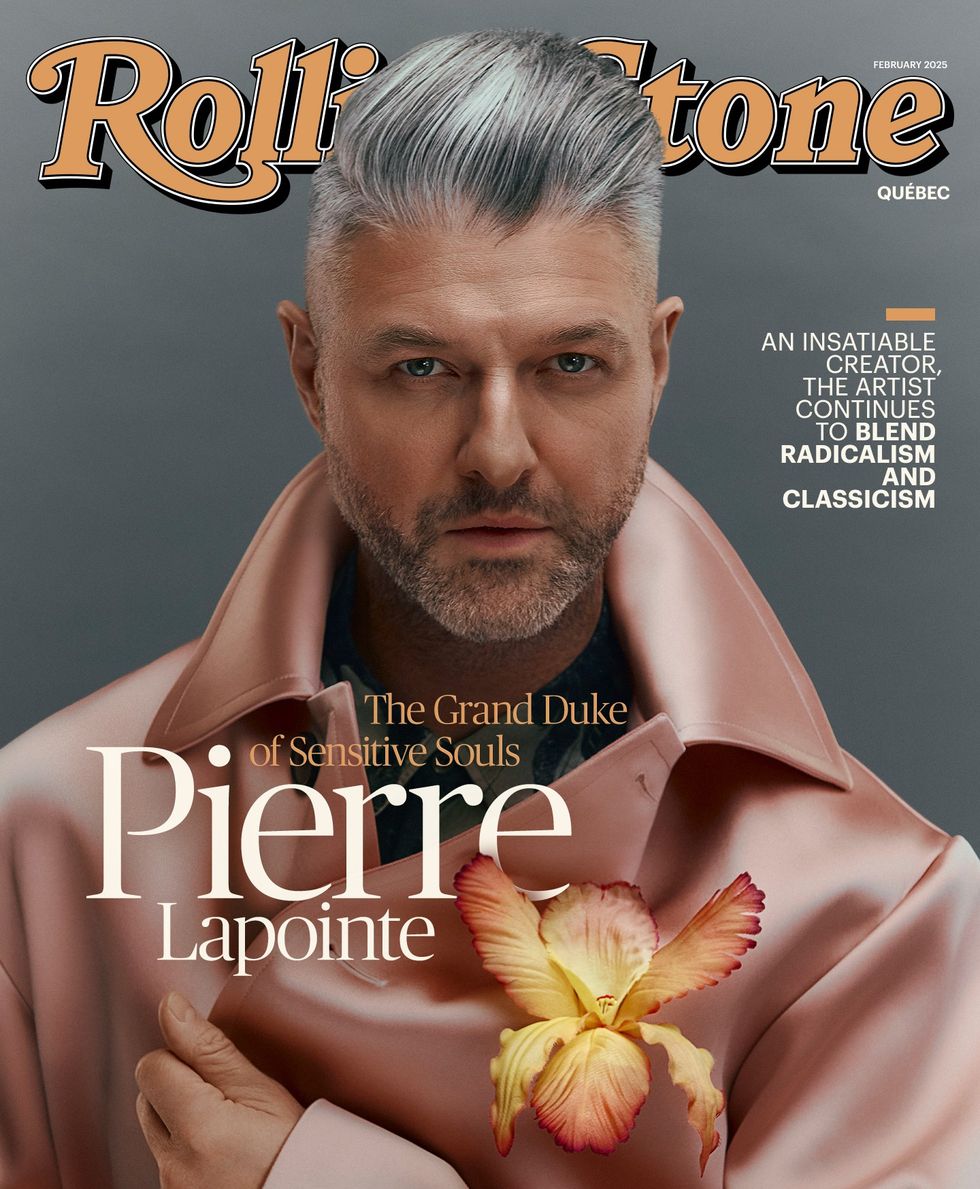 Coat (polyester and wool), shirt (silk), Dries Van Noten, SSENSE.com / Flower (silk), M&S Schmalberg
Coat (polyester and wool), shirt (silk), Dries Van Noten, SSENSE.com / Flower (silk), M&S Schmalberg
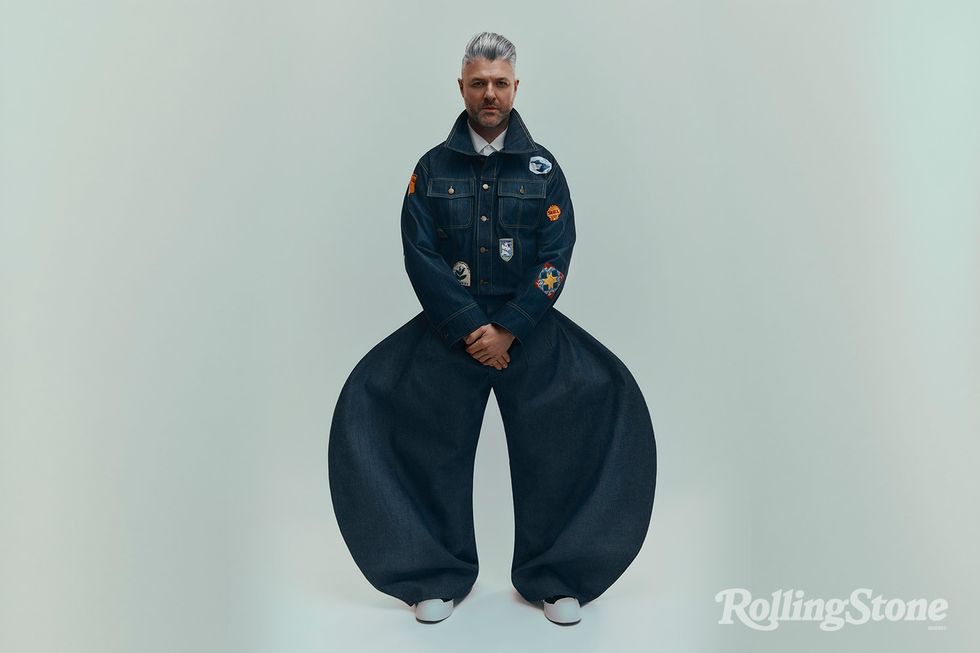 Blouson (denim and hand embroidered patches), WJ Crosson / Shit (polyester), Homme plissé Issey Miyake, Holt Renfrew/Pants from personal collection/ Shoes(canvas), Marni
Blouson (denim and hand embroidered patches), WJ Crosson / Shit (polyester), Homme plissé Issey Miyake, Holt Renfrew/Pants from personal collection/ Shoes(canvas), Marni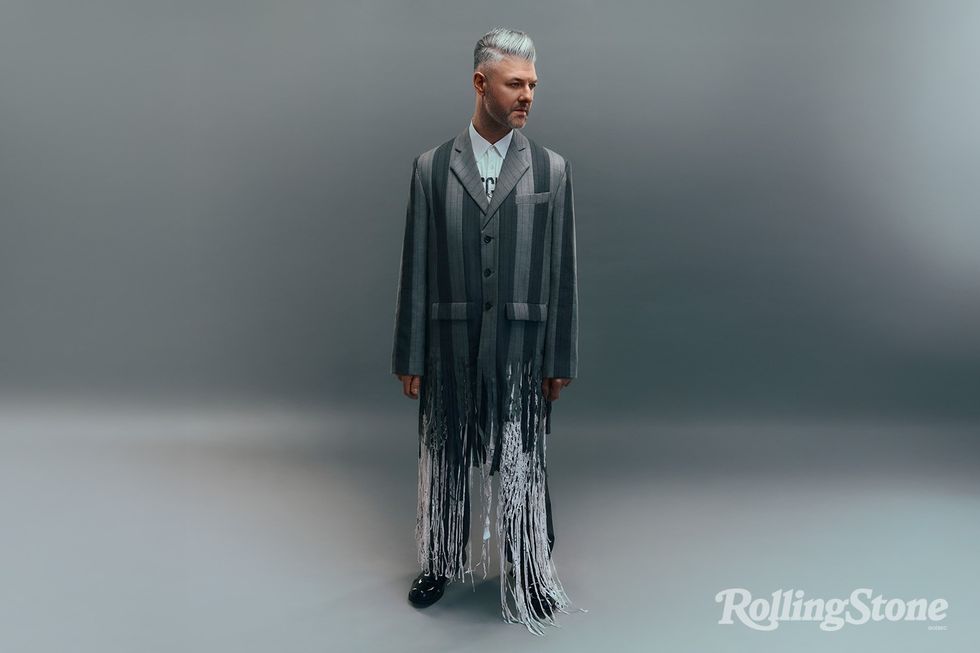 Jacket and pants (virgin wool), shirt (acrylic coated cotton), Moschino / Shoes from Pierre Lapointe's personal collection
Jacket and pants (virgin wool), shirt (acrylic coated cotton), Moschino / Shoes from Pierre Lapointe's personal collection